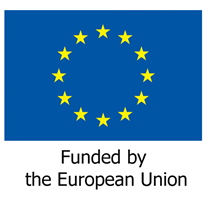Gender-sensitive labour migration policies and/or strategies regulating labour migration at national and/or regional level
The SAMM project is providing technical assistance to a number of countries that have requested support to formulate and implement labour migration policies. Work comprises fostering stronger coherence between employment and labour migration policies, particularly in making labour migration a factor in development policies and in increasing the involvement of labour market institutions in labour migration governance. This could include enhancing the identification of labour market needs for national and migrant workers. The SAMM project will be producing Labour Migration Country Reviews in all 16 SADC countries.
Progress has been made in fostering improved labour migration governance at the SADC level with the adoption of SADC’s Labour Migration Policy Framework. In this context, the Ministers of Employment of the Southern African Development Community (SADC) adopted a new SADC Labour Migration Action Plan (2020-2025) in March 2020. The SADC Labour Migration Policy Framework endorsed by SADC ELS (2014) and the SADC Labour Migration Action Plan (2020-2025) called for the development of national labour migration policies in all SADC countries.
Work will also comprise support to the adoption and implementation of the SADC Protocol on Facilitation of Movement of Persons; and the COMESA Protocol on Free Movement of Persons, Labour, Services, the Right of Establishment Residence.
The ILO produced in 2017 “General practical guidance on promoting coherence among employment, education/training and labour migration policies”. The General practical guidance will be piloted in the SADC context.
Work on labour migration policies will ensure to promote gender equality and women migrant workers’ empowerment by fostering their labour protection and the issue of gender-sensitiveness. It will include enlarging knowledge about the specificities of women’s labour migration, the limitations they face, the policy responses needed to ensure labour migration is fair and safe, and it addresses the needs of women migrant workers specifically.
- Support to Labour Migration Policies’ formulation (e.g. South Africa, Malawi, Mozambique, Eswatini, Seychelles & Botswana) and implementation (e.g. Seychelles Labour Migration Action Plan) and Mauritius – Migration and Development policy;
- Labour Migration Stocktaking Report, and Labour Migration Country Reviews;
- Labour Migration Best Practices in Countries of destination (Quotas, Labour market tests, Catalogues of occupation difficult to cover, Regularization schemes, Temporary migration programmes, etc.);
- Studies (e.g. Comoros, Zambia, Mauritius and Seychelles) and media campaigns on promoting a positive image of migrant workers and their positive contribution to development; Enrolment of media practitioners at IOM’s global media academy on LM reporting.
(k) Review relevant national labour laws, employment policies and programmes to ensure that they include considerations of the specific needs and contributions of women migrant workers, especially in domestic work and lower-skilled occupations, and adopt specific measures to prevent, report, address and provide effective remedy for all forms of exploitation and abuse, including sexual and gender-based violence, as a basis to promote gender-responsive labour mobility policies;
(f) Strengthen the enforcement of fair and ethical recruitment and decent work norms and policies by enhancing the abilities of labour inspectors and other authorities to better monitor recruiters, employers and service providers in all sectors, ensuring that international human rights and labour law is observed to prevent all forms of exploitation, slavery, servitude and forced, compulsory or child labour;
The GCM Objective 7 “Address and reduce vulnerabilities in migration” declares that Member States commit to respond to the needs of migrants who face situations of vulnerability, which may arise from the circumstances in which they travel or the conditions they face in countries of origin, transit and destination, by assisting them and protecting their human rights, in accordance with obligations under international law. Member States further commit to uphold the best interests of the child at all times, as a primary consideration in situations where children are concerned, and to apply a gender-responsive approach in addressing vulnerabilities, including in responses to mixed movements.
To realize this commitment, Member States draw from the following actions:
(b) Establish comprehensive policies and develop partnerships that provide migrants in a situation of vulnerability, regardless of their migration status, with necessary support at all stages of migration, through identification and assistance, as well as protection of their human rights, in particular in cases related to women at risk, children, especially those unaccompanied or separated from their families, members of ethnic and religious minorities, victims of violence, including sexual and gender-based violence, older persons, persons with disabilities, persons who are discriminated against on any basis, indigenous peoples, workers facing exploitation and abuse, domestic workers, victims of trafficking in persons, and migrants subject to exploitation and abuse in the context of smuggling of migrants;
(c) Develop gender-responsive migration policies to address the particular needs and vulnerabilities of migrant women, girls and boys, which may include assistance, health care, psychological and other counselling services, as well as access to justice and effective remedies, especially in cases of sexual and gender-based violence, abuse and exploitation;
(d) Review relevant existing labour laws and work conditions to identify and effectively address workplace-related vulnerabilities and abuses of migrant workers at all skills levels, including domestic workers, and those working in the informal economy, in cooperation with relevant stakeholders, particularly the private sector;
 English
English
